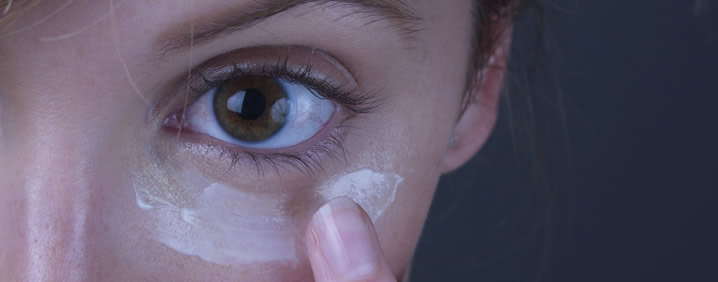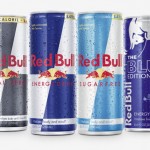Caffeine and Skin Care Products

Have you noticed the surge of new skin care products that now contain caffeine?
Not only is caffeine in a growing number of food and beverages, it is also in a growing number of cosmetics; including make-up, wrinkle cream, dark spot correctors, body wash, and shampoos.
Here are just a few caffeinated skin care products that we have tracked down so far.
Cosmetics and Soaps Containing Caffeine
| Product | Caffeine Source/Content |
|---|---|
| Origins GinZing | Coffee beans/ undisclosed |
| Juara Coffee Scrub | Coffee beans/ undisclosed |
| Bliss FatGirl Soap | Caffeine Anhydrous/ undisclosed |
| Kiehl’s Eye Cream | Caffeine Anhydrous/ undisclosed |
| LORAC Tantalizer | Caffeine Anhydrous/ undisclosed |
| Vichy Destock Stomach | Caffeine Anhydrous, Coffee, Yerba Mate/ 5% |
| Almay Wake Up Blush | Caffeine Anhydrous/ undisclosed |
| Peter Thomas Roth De-Spot | Caffeine Anhydrous/ undisclosed |
| Organix Awakening Shampoo & Conditioner | Coffee beans/ undisclosed |
| Psssst Volumizing Boost | Caffeine Anhydrous/ undisclosed |
| La Roche-Posay Rosaliac UV | Caffeine Anhydrous/ undisclosed |
| Smashbox Under Eye Primer | Caffeine Anhydrous/ undisclosed |
| Dermalogica Sebum Clearing Masque | Caffeine Anhydrous/ undisclosed |
| Garnier Anti-Puff Eye Roller | Caffeine Anhydrous/ undisclosed |
| BareMinerals READY Eyeshadow 4.0 | Caffeine Anhydrous/ undisclosed |
| Bath Buzz Body Cream | Caffeine Anhydrous/ undisclosed |
| Wash With Joe | Coffee/ Key Ingredient |
| Bath Buzz Soap | Caffeine Anhydrous/ 200mg per shower |
| Shower Shock | Caffeine Anhydrous/ 200mg per shower |
| Bath Buzz Lotion | Caffeine Anhydrous/ undisclosed |
| St. Ives Firm and Glow | Caffeine Anhydrous/ undisclosed |
| Caffeinated Shaving Cream | Caffeine Anhydrous/ 50mg per shave |
Thanks to Babble.com for help with the above list.
Does Caffeine Absorb Through the Skin?
Yes, caffeine does absorb through the skin. In fact, there was a product a few years ago called SpotOn that was essentially a caffeine patch similar to a nicotine patch.
Therefore, it is possible to get a dose of caffeine through the skin, which could add to a person’s total daily caffeine consumption.
The Caffeine Content Mystery
The cosmetic industry is surprisingly unregulated. Only two of the above products include how much caffeine actually is in their product and even then it is a bit ambiguous. We would guess that, in most cases, there is just a small amount of caffeine in most of the other cosmetics listed, but in some of the products coffee beans are one of the primary ingredients.
Shower Shock lists 200mg per shower, which is a significant dose, but the absorption amount would depend on how long the soap is left on the skin and other showering habits.
Does Caffeine in Skin Products Really Have a Purpose?
Cosmetic companies add caffeine to products based on a couple of studies that point to some potential health benefits of caffeine. However, this industry is notorious for making grand promises, but full of disclaimers such as “reduces the appearance” and “results not typical” etc.
- The University of Washington in Seattle recently conducted a study in which they exposed healthy skin cells and UV damaged skin cells to caffeine. The caffeine caused the damaged cells to die while not hurting the healthy cells. This study was published in the Journal of Investigative Dermatology. This study didn’t allude to the fact that topically applied caffeine would work any better than ingested caffeine though.
- The second reason for adding caffeine is actually from a number of studies over the years that point to caffeine’s anti-inflammatory properties. So, the theory is that if caffeine is placed under the eye, then it can help reduce puffiness and dark circle as they are caused by inflammation and poor circulation.
What About Caffeine as a Sunscreen?
Caffeine has a sunscreen effect.
Hard to believe – but apparently caffeine will absorb UVB rays when applied to the skin.
Our studies suggest that caffeine-SB and caffeine may be good agents for inhibiting the formation of sunlight-induced skin cancer (abstract).
Caffeine SB stands for Caffeine Sodium Benzoate. Hmmm… heard that somewhere before? Sodium Benzoate is a common ingredient in many carbonated drinks.
Do you think caffeinated cosmetics work? Do you know of any others that should be added to our list?

Get Help Quitting Caffeine
Reduce your caffeine intake without pain and discomfort.
Download our FREE ebook




